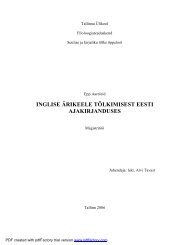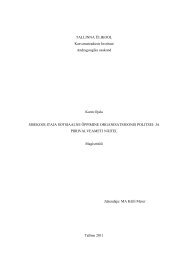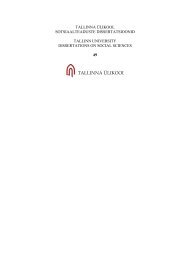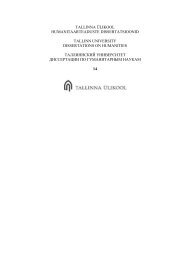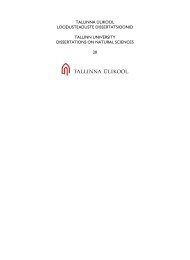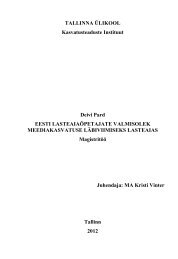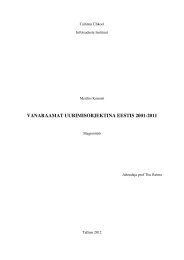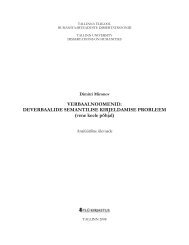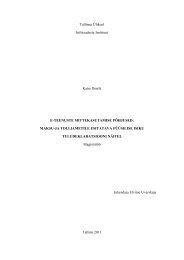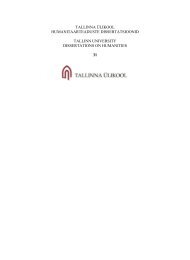Download (1157Kb) - E-Ait
Download (1157Kb) - E-Ait
Download (1157Kb) - E-Ait
You also want an ePaper? Increase the reach of your titles
YUMPU automatically turns print PDFs into web optimized ePapers that Google loves.
The reward system should not leave staff in suspense. It should state clearly the level of<br />
contribution meriting a reward. This notion is supported by the McKinsey Non-profit Practice<br />
report, "Building Knowledge Management Capabilities”. They indicate the need to establish<br />
minimum standards for expected contribution, offer rewards or recognition for outstanding<br />
efforts, and provide quick, easy access to submitted knowledge as a tangible result of efforts.<br />
See more about this report in (Liebowitz & Watt, 2006). The need to set minimum standards<br />
is important to rule out the possibility of discontent among staff who may feel that the<br />
selection of who is to be awarded is unfair. The placement of the standard should consider<br />
different capabilities of the participating staff. Ideally the standard should start by setting low<br />
minimum requirements to accommodate whoever has knowledge and wishes to contribute<br />
and then increase with time as staff get more acquainted with the reward system. The<br />
standard is not supposed to be a barrier but a guideline to what is expected from staff. When<br />
it is too high it may obstruct some from participating.<br />
Extra care is needed when matching the contribution to the reward. Self interest and<br />
motivation toward creating and sharing knowledge should not be interfered with by the<br />
financial benefit posed by the rewarding system. The introduction of a reward system may<br />
bring together with it some financial benefits. This is the time when, if the knowledge is<br />
directed toward a centralised knowledge base, then the organisation should think of buying<br />
extra storage devices. They will be a mass contribution nonetheless the quality of what is<br />
contributed may be more of a problem than a value to the company. There should be a<br />
moderator in whatsoever system is to be implemented. In Tanzania Public Universities<br />
Libraries this can be done for instance by asking staff to think on how to customise the<br />
available software to accommodate addition information pertaining to specific libraries.<br />
4.2. The need for Tanzania public university libraries to share<br />
knowledge<br />
Having discussed how knowledge is shared and what the incentives for knowledge sharing<br />
are, this section discusses why it is important for Tanzania public university libraries to share<br />
knowledge. When asked to give their opinion about what they think about knowledge sharing<br />
seven out of thirteen respondents suggested the need for more education on the importance of<br />
knowledge sharing. The remaining respondents acknowledged the significance of knowledge<br />
49




